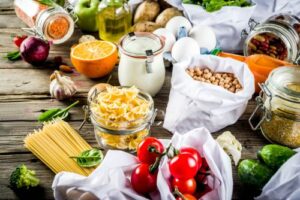Organic products: vulnerable to fraud?

Fraudulent practices have emerged over the years for many reasons.
First of all, it is one of the most dynamic segments of the agri-food market in France and worldwide, with growth rates of over 10% per year for several years. Demand is structurally greater than supply.
It is also a sector in which trade is becoming more international. For example, imports accounted for nearly 14% of total consumption of organic products in France in 2017. Logistic chains have become longer, as shown by the difference between the main producing countries (Australia, Argentina and China) and the consuming countries (USA, Germany and France). It is therefore easier to lose track of batches of products than when the circuits are shorter.
The regulatory frameworks for organic farming vary from country to country, creating distortions of competition between European and non-European farmers and loopholes that can be used to sell products that do not follow the same production rules as those produced in Europe.
Above all, the potential gains from fraud are substantial. According to a study carried out by the supermarket journal Linéaires, organic products are on average 64% more expensive than conventional products. A second financial incentive comes in the form of subsidies paid to organic farmers by public authorities under the EU’s rural development policy. Le paiement spécifique en leur faveur consiste en un soutien à l’hectare accordé tant par l’UE que par les États membres.
Strong consumer pressure

More and more organic consumers are also expressing doubts about the “real” organic nature of the productsthey buy. According to the 2018 Barometer of the Agence Bio, more than 60% of consumers have doubts about the authenticity of organic products.
Organic farming, originally based on an obligation of means (implemented practices), will have to convince consumers that this mode of operation guarantees the benefits they expect in terms of nutrition, health and environmental protection.
Limited means of control
Finally, the current means of control have their limits, whether it be traceability, certification or physico-chemical analyses. Better analytical tools capable of demonstrating the conformity of organic foodstuffs to their specifications could be a solution to reassure the players in the sector and the consumers.